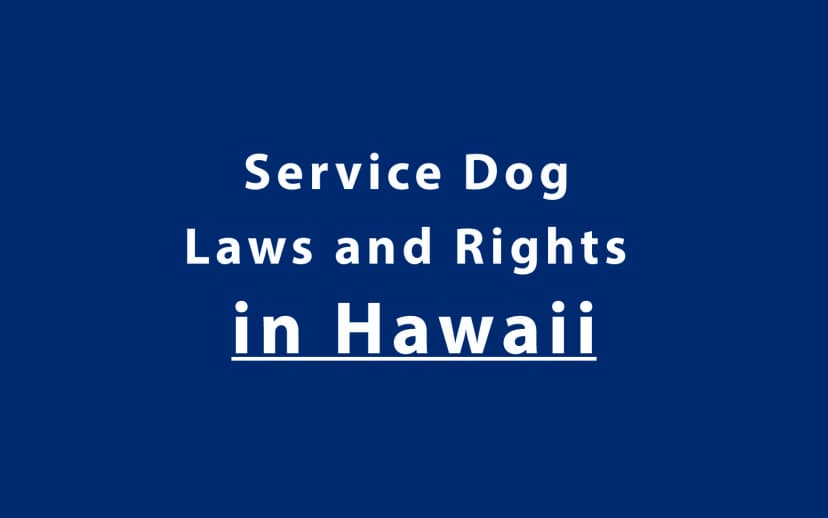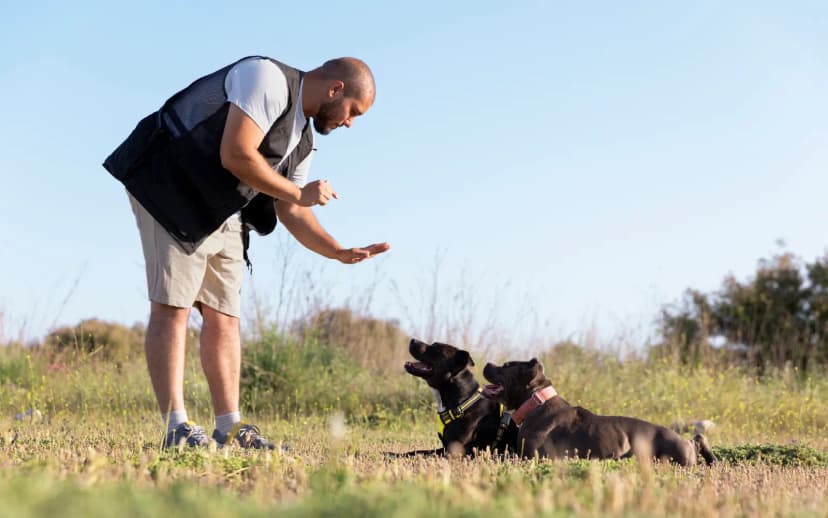Service Dog Laws and Rights in Massachusetts
Service dogs play an essential role in assisting individuals with disabilities, enabling them to lead more independent and fulfilling lives. In Massachusetts, as in other states, specific laws and regulations govern the use of service dogs, ensuring the rights of handlers are protected while maintaining public safety and accessibility. This comprehensive guide delves into the definitions, rights, responsibilities, and legal considerations associated with service dogs in Massachusetts.
Introduction to Service Dog Rights in Massachusetts
Understanding the legal landscape surrounding service dogs is crucial for handlers, businesses, landlords, and the general public. Both federal and state laws provide protections and set guidelines to ensure that individuals with disabilities who rely on service dogs can access public spaces, housing, and employment without discrimination. Key legislations include:
- Americans with Disabilities Act (ADA): A federal law prohibiting discrimination against individuals with disabilities in all areas of public life.
- Massachusetts Service Animal Law: State legislation that aligns with the ADA, offering additional protections within Massachusetts.
- Fair Housing Act (FHA): Ensures individuals with disabilities have equal access to housing, including accommodations for service and assistance animals.
- Air Carrier Access Act (ACAA): Regulates the rights of individuals with disabilities when traveling by air with service animals.
Definition of a Service Dog in Massachusetts
Under the ADA, a service animal is defined as a dog that is individually trained to perform tasks or do work for a person with a disability. These tasks must be directly related to the individual’s disability. Massachusetts law mirrors this definition, ensuring consistency between state and federal regulations. It’s important to distinguish between:
- Service Dogs: Trained to perform specific tasks for individuals with disabilities.
- Emotional Support Animals (ESAs): Provide comfort by their presence but are not trained to perform specific tasks related to a disability.
- Therapy Animals: Trained to provide psychological or physiological therapy to individuals other than their handlers, often in institutional settings.
While service dogs have broad public access rights, ESAs and therapy animals do not enjoy the same legal protections in public accommodations.
Public Access Rights in Massachusetts
Both the ADA and Massachusetts law grant individuals with disabilities the right to be accompanied by their service dogs in all public accommodations. This includes, but is not limited to:
- Restaurants
- Hotels
- Retail stores
- Government buildings
- Hospitals
Handlers are responsible for ensuring their service dogs are under control at all times, typically using a leash, harness, or tether. If these devices interfere with the dog’s work or the handler’s disability prevents their use, alternative methods such as voice or signal controls must be employed. Businesses and staff may only ask two specific questions when the need for the service dog is not apparent:
- Is the dog a service animal required because of a disability?
- What work or task has the dog been trained to perform?
They cannot request documentation, require the dog to demonstrate its task, or inquire about the nature of the handler’s disability. However, a service dog can be asked to leave if it is out of control and the handler does not take effective action to control it, or if the dog is not housebroken.
Housing Rights for Service Dog Handlers
Under the FHA, individuals with disabilities are entitled to reasonable accommodations in housing, which includes the right to have service or assistance animals, even in properties with no-pet policies. Massachusetts’s laws align with these federal protections. Landlords and housing providers cannot charge pet fees for service or assistance animals but may request documentation if the disability or the need for the animal is not obvious. This documentation typically comes from a healthcare provider affirming the individual’s disability and the necessity of the animal for their well-being.
Employment Rights in Massachusetts
Title I of the ADA requires employers to provide reasonable accommodations to employees with disabilities, which can include allowing a service dog in the workplace. Employers may request documentation to substantiate the need for the service dog but must engage in an interactive process to determine appropriate accommodations. Accommodations can only be denied if they pose an undue hardship on the operation of the business.
Air Travel and Transportation Laws
The ACAA ensures that individuals with disabilities can travel with their service dogs on commercial airlines. Airlines may require documentation and prior notice, especially for long flights. Service dogs must be accommodated in the cabin without additional fees.
For other modes of public transportation, such as buses, trains, and taxis, the ADA mandates that service dogs be allowed to accompany their handlers. Transportation providers cannot deny access or charge additional fees for service dogs.
Service Dog Training and Certification in Massachusetts
Massachusetts does not require service dogs to be certified or registered. Handlers have the option to train the dog themselves or seek professional assistance. The key requirement is that the dog is trained to perform specific tasks related to the handler’s disability. While not legally required, some handlers choose to use identification cards, vests, or harnesses to signify their dog’s status as a service animal, which can help in public interactions.
Penalties for Misrepresenting
Misrepresenting a pet as a service animal is not only unethical—it is also against the law in Massachusetts. Individuals who falsely claim their animal as a service dog can face legal consequences. Massachusetts General Laws Chapter 272, Section 98A states that misrepresentation is a civil offense and can carry penalties such as:
- Fines up to $500
- Community service
- Potential misdemeanor charges depending on the context and whether fraud or disruption occurred
This law helps protect the integrity of legitimate service dog teams and reduces public skepticism. When individuals abuse service dog rights, it creates barriers for those who truly rely on trained animals to assist with their disabilities. Responsible use and honest representation are vital to maintaining the respect and privileges afforded under state and federal law.
Frequently Asked Questions (FAQs)
Can businesses ask for proof of service dog certification?
No. Neither the ADA nor Massachusetts law requires handlers to provide certification or ID. Businesses may only ask the two legally permitted questions.
Are emotional support animals (ESAs) considered service animals?
No. ESAs provide emotional comfort but are not trained to perform specific disability-related tasks. They are not granted the same public access rights as service dogs.
Can service dogs be denied access to restaurants or taxis?
No. Service dogs must be allowed anywhere the public is allowed, including taxis, restaurants, and stores, unless the dog is out of control or not housebroken.
Do service dogs need to wear a vest in Massachusetts?
No. There is no legal requirement for a service dog to wear a vest, patch, or harness, though doing so may help reduce misunderstandings in public.
Can landlords charge pet fees for service dogs?
No. Service dogs are not considered pets under the law. Landlords may not charge pet deposits or additional rent.
What should I do if I’m denied access with my service dog?
You can file a complaint with the Massachusetts Office on Disability or the U.S. Department of Justice’s Civil Rights Division. You may also consult with a disability rights attorney.
Conclusion
Service dog laws and rights in Massachusetts reflect the state’s commitment to protecting the independence and dignity of individuals with disabilities. Whether navigating public spaces, renting a home, or traveling by air, service dog handlers are protected under both state and federal law. However, with these rights come responsibilities—handlers must ensure their dogs are properly trained, under control, and not misrepresented.
Public awareness and compliance are key to fostering inclusive communities. By understanding the legal framework and ethical obligations, individuals, businesses, and service dog handlers can work together to create safe and accessible environments for everyone.
For additional resources or to explore service dog registration and support tools, visit AssistanceDogPartners.org.



